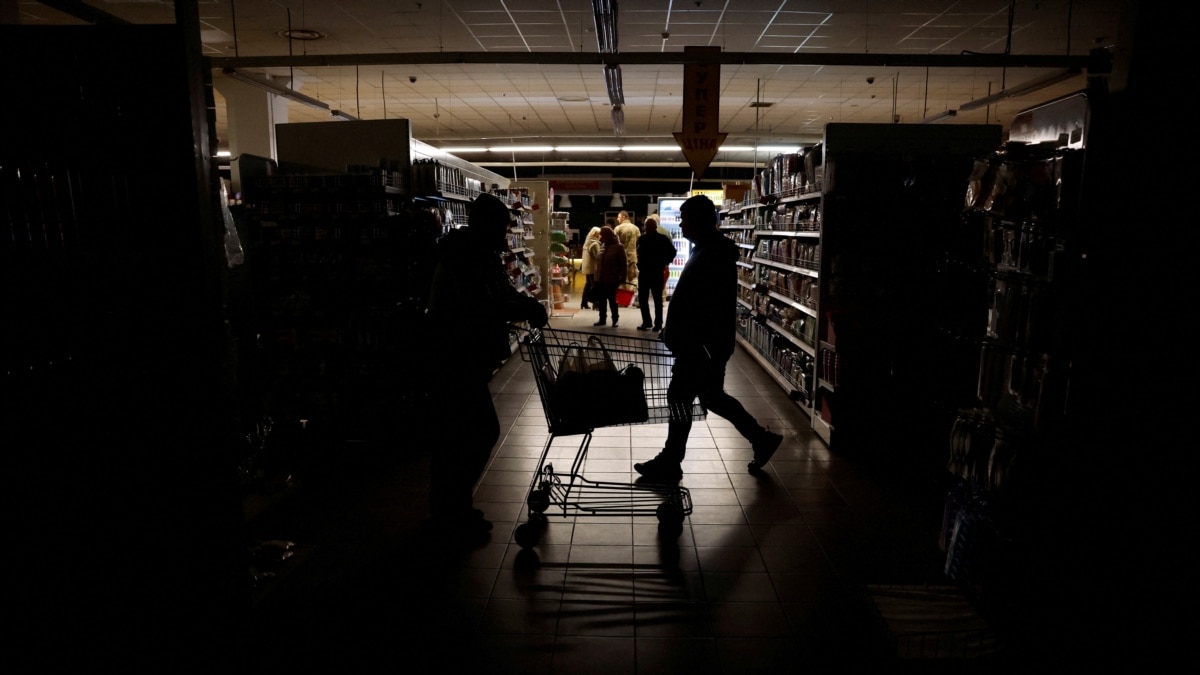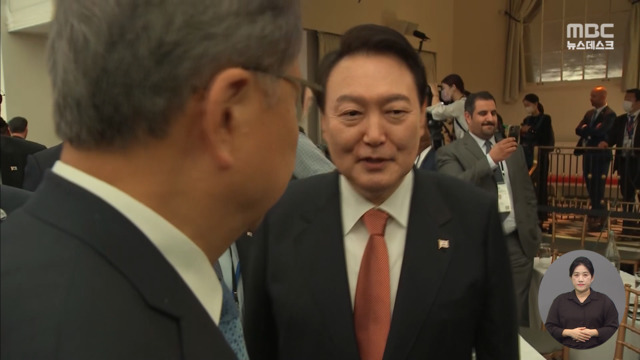This is ‘Global Village Today’, which provides important news from various countries around the world.
Moderator) What news do you have today?
Journalist) Yes. Ukraine has imposed restrictions on the use of electricity as its infrastructure was severely damaged by a series of Russian attacks. The Japanese yen broke through the 150 yen per dollar level, considered a “psychological resistance level”.
Moderator) This is the first news of today’s global village. Does it seem that Ukraine’s power situation is quite serious right now?
Journalist) Yes. The Ukrainian government has put in place restrictions on the use of electricity from 7:00 to 22:00 on the 20th. Ukrainian President Volodymyr Zelensky said in a video speech the night before (19), urging people to conserve electricity, saying the government is now working to build an energy supply chain for key infrastructure.
Moderator) So, the electricity is cut all over Ukraine?
Journalist) Yes. However, this is not a nationwide power outage. It will operate sequentially by region and the duration will not exceed four hours, explained Ukrenergo, the Ukrainian state-owned electricity company.
Moderator) How much damage is the current power plant in Ukraine?
Reporter) Oleksandr Harshchenko, adviser to the Energy Minister of Ukraine, appeared on Ukrainian state TV the day before (19) and said that about 40% of Ukraine’s total power plants and capacity are been severely damaged.
Moderator) So, wouldn’t it be easy to bounce back in a short amount of time?
Journalist) Yes. “At the moment there is restoration and repair work going on, but miracles are only possible to a certain extent,” said Harshchenko, so energy consumption must be limited so that the current grid is not overloaded. . Ukrainian state utility Ukrenergo also said it could limit electricity consumption again in the future as winter approaches.
Moderator) The Russian military is now intensely attacking Ukraine’s infrastructure, right?
Journalist) Yes. Earlier this month, Russia launched a massive retaliatory attack after the Crem Bridge explosion, considered the pride of Russian President Vladimir Putin. In particular, recently, self-destructive cruise missiles and drones have been used to intensively attack Ukraine’s major infrastructure such as electricity, water and energy.
However, there are continuing claims that the “self-destructive drone” used by the Russian military is manufactured in Iran. This issue was also discussed at the UN Security Council meeting, right?
Journalist) Yes. The meeting of the United Nations Security Council was held on the 19th. At the request of three countries, the United States, the United Kingdom and France, the situation of Iran’s arms support to Russia was addressed on the agenda. Permanent members of the Security Council claim that Iran’s arms supply to Russia violates UN Security Council Resolution 2231.
Moderator) What specifically does Security Council Resolution 2231 contain?
Journalist) Yes. Security Council Resolution 2231 refers to the so-called “Iran nuclear deal” of the “Joint Comprehensive Plan of Action (JCPOA)” signed between Iran and six major countries in 2015. The main objective is to limit Iran’s uranium enrichment activities, but also prohibits Iran’s trade in missile technology and the development of delivery means. The US, Britain and France say Iranian drones used by Russia are also included in the weapons category restricted by Security Council Resolution 2231.
Moderator) Did you know what was happening in the meeting room?
Reporter) Since the meeting was held in private, we cannot know the details of the observations. But before the meeting, Nate Evans, spokesman for the US mission to the United Nations, said the meeting would be a place for much dialogue, holding Iran and Russia responsible for failing to comply with the obligations imposed by the Security Council. of the UN. “There is sufficient evidence that Russia is using Iranian drones in brutal and deliberate attacks against the Ukrainian people,” Nate said.
Moderator) Do we listen to the stories of the other participating countries?
Journalist) Yes. The French ambassador to the United Nations, Nicolas de Rivière, also reiterated to reporters shortly after the meeting that Iran’s arms trade violated Security Council Resolution 2231. Ambassador Rivier stressed that Security Council Resolution 2231 requires Iranian arms transfers to be approved on a case-by-case basis and that Iranian drones have never received such approval.
Moderator) Were there any comments from the Russian side?
Journalist) Yes. Immediately after the meeting, the Russian Deputy Ambassador to the United Nations, Dmitry Polyansky, also announced his country’s position to reporters. The West pointed out that the meeting did not provide any evidence that Iran had sold drones to Russia. He said it was an unfounded accusation by the West to put pressure on Russia and Iran.
In the midst of this, has Russia declared martial law in the occupied territory of Ukraine?
Journalist) Yes. On the 19th, Russian President Vladimir Putin declared martial law in four areas occupied by Ukraine: Kherson, Zaporiza, Donetsk and Luhansk. Martial law came into effect on the 20th.
Moderator) What did you say about why martial law is invoked?
President Putin has blamed the Ukrainian government. The Ukrainian government has repeatedly attacked without recognizing the will of the people and refusing to negotiate, explaining that it is calling for martial law for the security of the region. The ‘popular will’ Putin referred to refers to the referendum in favor of the annexation of Russia held in the region at the end of last month. Russia annexed these territories with an overwhelming yes. However, the international community does not recognize this.
Moderator) But is Russia restricting the movement of its citizens?
Journalist) Yes. On this day (19), the Russian government imposed restrictions on the movement of residents in eight regions, including the Krum Peninsula and the states bordering Ukraine, such as Belgorod, Krasnodar and Bryansk. The Krum Peninsula was forcibly annexed by Russia in 2014, but other areas are Russian territory. According to independent Russian media, this measure will strengthen entry and exit controls, such as crossing the border with vehicles. In an emergency, it is known that the authorities can force residents to move.
Moderator) Global Village Today, this time we will go to Japan. Is the Japanese yen still depreciating?
Reporter) Yes. On the 20th, in the Tokyo exchange market, the value of the yen reached the level of 150 yen at some point during the day. The yen closed trading at 149 yen on the day, but the yen’s weakness continues.
Moderator) So are you saying that 1 US dollar equals 150 Japanese yen?
Journalist) Yes. That’s why the yen isn’t worth it. The Japanese business community regarded 150 yen per dollar as a psychological edge. However, since it passed the 150 yen mark on the same day, attention is focused on the possible intervention of the Japanese government.
Moderator) But why is the yen so weak?
Reporter) Economists cite the difference in interest rates between the US and Japan as the main reason. The US is currently in the midst of a series of massive rate hikes to keep pace with record inflation. On the other hand, Japan maintains an ultra-low interest rate policy. As a result, the movement to sell low-interest yen and buy high-rate dollars continues. This is an analysis that leads to a weakening of the yen.
Moderator) So what’s the way to stop the weak yen?
There is also a way for the government to buy yen. Last month, when the yen-dollar exchange rate hit the high range of 145, the Japanese government tried to prevent the yen from falling further by selling dollars to buy yen. However, the value of the yen is still falling without being able to hold on for a while. Some experts have warned that if this trend continues, there could be chaos comparable to the 1997-98 Asian exchange period.
Moderator) If the situation doesn’t improve even if the government intervenes directly, isn’t there a way to raise interest rates?
However, this is not a situation that can be solved simply by raising interest rates. Japan’s low interest rate policy is at the heart of former Prime Minister Shinzo Abe’s economic policy, the so-called “Abenomics”. His successor, Prime Minister Fumio Kishida, also maintains this position.
Moderator) Why does the Japanese government maintain a low interest rate policy?
Reporter) This is to stimulate consumption and stimulate the economy by inducing a weakening of the yen. On the other hand, there is also the intention to reduce the burden of government bonds. Currently, Japan has a huge debt. This is because even a small rate hike could raise the interest burden. Meanwhile, Haruhiko Kuroda, the governor of the Bank of Japan (BOJ), the central bank of Japan, suggested on the 19th that if there is stabilization and a weak yen, it will be good for the economy as a whole, and that it will maintain a low interest rate position.
Moderator) Global Village Today I will listen to this point.


